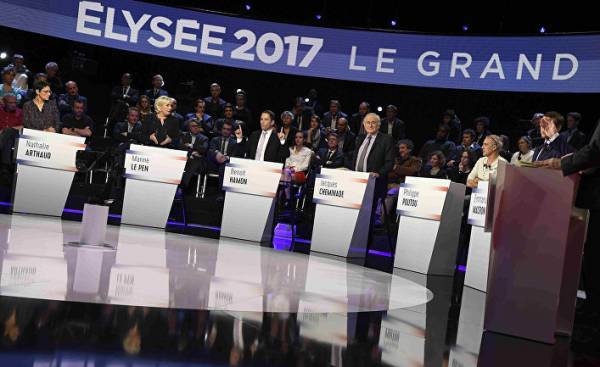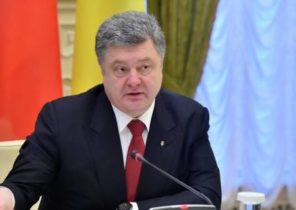
Le Figaro appealed to the five scientists for assessment of who, in their opinion, became the winner and the loser in the debate, which on Tuesday evening agreed 11 presidential candidates.
Frederic Dabi (Frédéric Dabi), Deputy General Director of the French Institute of public opinion:
— Who won? First of all, a little-known candidates. Each of them had their moment of glory during the debate. Take Philip Harris, who amused the audience with witty attack on françois Fillon and marine Le Pen. Emmanuel macron also won in the sense that it didn’t make any mistakes, although much could have lost. In addition, he was able to stand out against most of its rivals, the skeptics, presenting himself as a symbol of the positive perception of the European construction.
Marine Le Pen, in turn, sounded the least convincing and passed the position in this debate, giving an active role to lesser-known candidates. In addition, it is sluggish to respond to attacks in its address and “worker immunity,” by Philip Harris. Apart from its phrase about the French University of the jihadists, she almost did not remember in this debate.
Christian Delport (Christian Delporte), University of Versailles-Saint-Quentin:
— None of the main candidates did not show itself with the exception of Jean-Luc Mélenchon. I must say that form of debate, especially for those not promoted. Two “small” candidates, Philip Harris and Nicolas DuPont-Aignan was marked by active attacks against françois Fillon and marine Le Pen. Anyway, no standout no.
The main candidates sought to reduce the risk to a minimum. François Fillon seemed very distant, marine Le Pen held a defensive positions, and Emmanuel macron were acting with extreme caution. I don’t think this debate helped the French to make the right choice.
Stefan roses (Stéphane Rozès), President of ATS, a teacher at the Paris Institute of political studies:
— It is difficult to call a winner because the only real triumph was the General debate. The debate has touched on to a greater extent individuals, not projects, and not allowed to develop them. In addition, they showed that the country (with the exception of the Trotskyists), ideologically focused on the issues of the nation, the Republic and citizenship. Almost all disputes were in fact three of these concepts. But if you still need to announce the winner, I would say that it was Jean-Luc Mélenchon.
Most important was the debate for Benoit Amon, but he could not find a suitable position between the responsible and protest figure.
Perrino Pascal (Pascal Perrineau), a political scientist, Professor at the Paris Institute of political studies:
— Such a debate might play into the hands of less well-known candidates. However, this does not too help them, because each of them fixated on a very narrow topic: the anti-European attitude françois Asselin, protection of communities of Jean Lassalle, anti-capitalism Nathalie Artaud and Philip Harris, the criticism of the financial crisis, Jacques Cheminade. To get out of this niche have attempted only Nicolas DuPont-Aignan.
As for the “big” candidates who could have the most to lose, Emmanuel macron is secured using low profile, marine Le Pen was focused primarily on my convinced the electorate, Francois Fillon underlined the status of statesman, Jean-Luc Mélenchon again showed originality and oratorical talent, and Benoit Amon tried to further promote socialism with a multicultural flavor. Each adhered to his style and did not change the course. The consequences in terms of the correlation of forces will be negligible.
Ruben Guillaume (Guillaume Jubin), a partner in the consulting firm Tilder:
— I think that less well known candidates emerged victorious from these debates, which gave them equal with the rest of the space. Their performances helped to bring the debate to the anxieties, worries and questions of the French regarding the presidential candidates.
For the French, there was not actually a loser, as well as those who managed to rise upward. The debate simply allowed all the spectators to see themselves in one time or another in the statements of candidates who, incidentally, favored a simple and unifying, not pragmatic and technical rhetoric.







